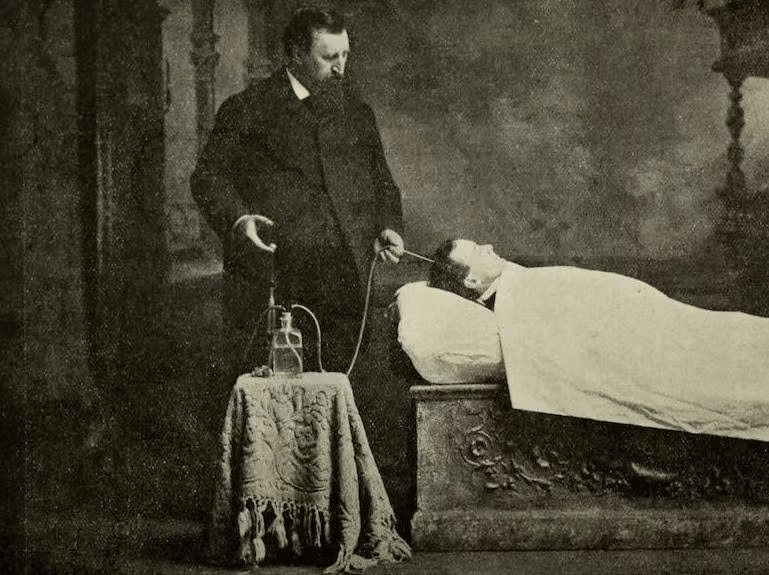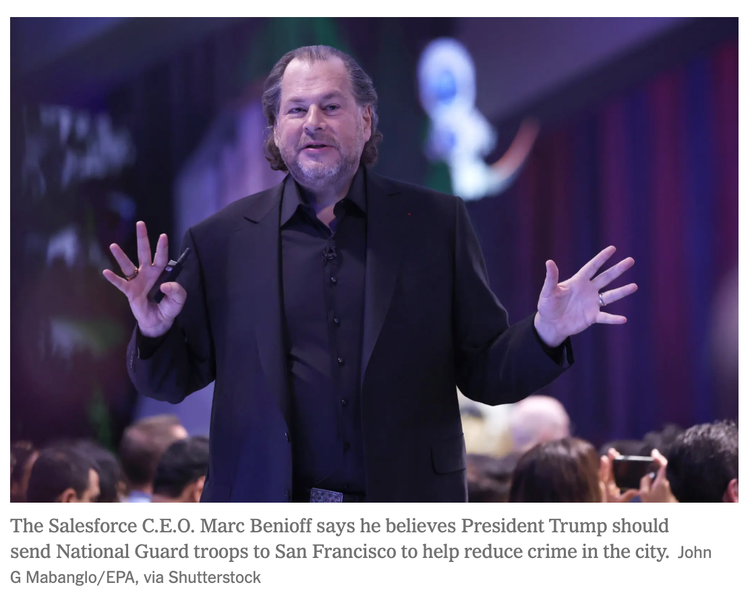We All Want the World and We All Want It Now

Quite the week...or is it just me?
It's been two weeks since our Japan honeymoon trip, and Greta and I, try as we might, are back in the full swing of things after almost a week of traveling. I would be lying if I didn't admit the great return has been like crawling up a great sand dune on my hands, knees, and face - occasionally looking back at the oasis of inattentiveness about the lives we left behind for a bit.
Even today, I find myself stewing on the slow, subtle bending of the knee to the salvation our current system has set up. The slog of mandated transition is more apparent and even more brutal as we transition from who we were while traveling and what we knew we would return to. I sound like some annoying new-age, burnt-out millennial/hippie concoction who has finally come down from their first hero dose of mushrooms, suddenly able to see "everything how it's always been." Apologies, but existing in this double-state of the now fading "traveler" as our real-life responsibilities re-materialize, all while being weirdly aware of settling back into the life I've constructed for myself over the years (no dig at all, it's a great life!) has been driving me a bit mad if you can't tell. Nothing new, right? And likely nothing a little breather from such thoughts and the trip itself will remedy.
One must go through this. You can't just go traveling, a vacation, a honeymoon, and stay forever…can you? I guess anything is possible but, eventually, you must come home in one form or another.
In this newsletter:
Gen Z vs. Millennials...What's the Beef?
Hollywood Pulls a Reverse Uno Card on its Screenwriters
Where Have All the Young, Sad Literary Men Gone?
Gen Z vs. Millennials...What's the Beef?

When I was growing up - 16, 18 - and likely even into my mid-twenties, I can't remember a single instance where I thought about the generation ahead me or the generation behind me. Not once did they cross my mind in a positive, negative, or neutral way. I knew they existed. I knew they were around, but I never gave them much thought or developed any strong feelings or attitudes towards them. They were just there, and if one or the other crossed my path, I would say hello, how are you, and move on. This is why I'm finding it so weird but not necessarily bothered (if you weren't aware, there are presently bigger issues at hand) that Generation Z (generally born between 1997 and 2012, which, as of 2025, makes them roughly between 13 and 28 years old) is subtly coming after Millennials.
Now, when I say "coming after," I'm being hyperbolic. There isn't a generation-on-generation crime trend being reported as major news. In fact, according to a report by PPIC senior fellow Magnus Lofstrom (co-authored with research associate Brandon Martin and research fellow Deepak Premkumar), the nonprofit, nonpartisan think tank found that "...violent felony arrest rates for young adults have dropped by more than 50% over the last 25 years."
It’s not generation-on-generation violence but more so a digital "stirring of the pot" on social media that looks and sounds like soft critiques of Millennials as a general "group” that I can look away as soon as I pay attention. The only reason I am paying attention is because I find it interesting on a sociological and anthropological level. These criticisms appear to be defined as what we enjoy doing, how we enjoy doing those things, and other demographic idiosyncrasies. What's interesting is it doesn't appear to be about about what we have or don't have. As one commenter put it on this video, "Gen Z didn't get the illusion of hope millennials did." Ouch. Well, there’s that I guess. There’s much much more but the general sense seems to be this weird annoyance with us, reminding me of when I was younger: arrogant, idealistic (not a bad thing!), and of the mind everything was “lame.”

Given Gen Z is the first generation entirely raised on the internet, it makes sense platforms like Meta (formerly Facebook), Instagram, Snapchat, YouTube, and TikTok (goddamn, that is a lot) were where they decided to start this one-sided tiff. That illusory status game of likes, dislikes, algorithms, and ratios they were raised on is, sadly, what many of them deem as the real world. Don't get me wrong, it very much is, but - it's also not which is where the true trouble lies.
One creator, @mannybuckley, makes this point well in a funny video titled "Millennial Unbotheredness," emphasizing that Millennials, like literally every other generation before us, had to survive every day, every hour, every minute, in the real, physical world. Gen Z does too, but, as this case hopefully makes clear, a majority of spats are online and not done face-to-face. @mannybuckley references details of this with getting "...noogies, wet willies, and wedgies. And if somebody talked about you, they didn't do it behind a screen - they did it to your face. They called you...a hoebag." Watching it over again, I had to laugh because I remember many times calling friends "hoebags," and getting called that, and worse.
The petty drama, a symptom of both parties being online too much and mixing up our signals on the fronts of real-life value versus online value (and it's only getting worse) is that Gen Z, which I am guilty as of as well, isn’t utilizing this time to learn from the generation ahead of them. I also think the aggression is misplaced and should be pointed at points of power than a generation that has been dealing with this kind of shit long before them.
In today's digital age, online "discourse" is the currency of social media that not only exists in the economy for content creators but of course these platforms. There is, what Scott Galloway unpacked on co-hosted podcast with Kara Swisher “Pivot,” a “profit model” built within, benefitting on contention. Hot take "discussions" are a resource - like our data - exploited by the very platforms that engineered this toxic narrative that millennials adapted to by force (or were left behind), and Gen Z was born into without any freedom to say no. Instead of fostering insight from each other, it encourages petty nitpicking like the case we have here, ultimately eroding our ability to learn from one another and build a future we can share with pride and awareness.
Hollywood Pulls a Reverse Uno Card on its Screenwriters

Growing up, there was always some kind of movie on in our house, mostly at my dad's. He had a predilection to always have something "on," be it a movie, TV, music, radio...you get the idea. One the clearest memories I have in middle school was having Steven Spielberg's "Saving Private Ryan" on at full blast whenever we’d be cleaning the house…the D-Day scene on as I vacuumed the living room rug…mopping the floor.
I grew up with movies, and and follow the industry, through social media, news, and blogs, from afar now. Back in my early twenties, I even had the thought of becoming an actor and was justifiably laughed at when I admitted to a friends father that I wanted to be the next Marlon Brando. If you know me, I did not become the next Brando but an observer bearing witness to a sector that has financially and artistically, in some respects, been in decline. Domestic box office in 2024 for example took yet another massive hit, down 3% from 2023 according to Comscore data. This and many other signs of the industry thinning not to look more appealing on the cover of Vogue but adapt and survive are reportedly forcing screenwriters to write a novel to compliment their screenplay.
If you're bewildered by that idea, imagine how these hundreds of screenwriters in Los Angeles, who are just coming off a big win from their 2023 strike, must feel. They fought for what they needed to live and continue on only to be told that, despite their craft and art of...screenwriting, they now also need to produce a novel as a kind of compliment to it. Do they even know how to write a novel? If so, will they actually sell? Maybe but I don't see the publishing industry sharing any of revenue with these studios, only the rights.
This, I think, is an instance of major studios/execs finding it necessary - similar to how publishing houses lean towards large social media followings rather than nothing - to lean on their even more creative teams. They not only want the story, which they will turn around to produce (and profit off of) but now want to force the creative to work to ensure a buyer's market first. In other words, the studio intends to hedge its investment to guarantee a base of buyers before the product is even released, all while utilizing the creative's time and energy, which, ironically, they were making it wildly fucking hard before 2023 even to do.
Actor Vince Vaughn discusses the need for IP from studios eating hot chicken wings
This runaround is a possible sign of "enshittification," according to Cory Doctorow, who coined the word in 2024 in Wired. "Here," Doctorow wrote, "is how platforms die: First, they are good to their users (in this example, producers and users); then they abuse their users to make things better for their business customers; finally, they abuse those business customers to claw back all the value for themselves. Then, they die. I call this enshittification."
For screenwriters and man, writers in general, finding your audience (future IP in the eyes of the studios) while simultaneously working to put down a story that is one worth watching while trying one's best to themselves feel they aren't a cog in the dying machine of Hollywood/digital streaming, is an existential nuke I wouldn't want to drop on anyone's head...especially if they love it.
But, it's here. It's happening, and could lead to an entirely new paradigm of how creatives deal with these studios/agencies or, as Cory Doctorow seems to describe the possible end-game of the enshittification cycle the industry as a whole may be facing: "Surpluses are first directed to users; then, once they're locked in, surpluses go to suppliers; then once they're locked in, the surplus is handed to shareholders and the platform becomes a useless pile of shit."
Where Have All the Young, Sad Literary Men Gone?

The other weekend a friend of mine shared a podcast from "Today, Explained," aptly titled, "All the sad young literary men." They instantly thought of me because I've been a sad literary man for most of life. What wasn't quite a fit was with what they were discussing, a publishing house by the name of Conduit Books spun about by writer Jude Cook seeking manuscripts from only men under 35 from the UK (I'm 37 and American so...bummer?). The joke here was that I was too old and, being so, was "left out" of potential talent for them. I've been left out of things most of my life - nothing new there under the sun. What did interest me, though, was what exactly I was being excluded from to either feel worse than I already do about aspects of my writing career or make fun of it: that and a good story.
Me me me...what about ME?
There is a lot to unpack here. Plus, there is also Ross Barkan's essay, "From Misogyny to No Man's Land: The Vanishing Male in Contemporary Literature," also discussed in the podcast. Seeing the newsletter is already over 1500 words, I'll link the entirety of the show's notes here, as well as Barkan's essay above. Both are worth reading.
The gist, though, is that women writers, from the data shared, have been "taking" market share from sad young literary men for years now, leaving them to do...well, everything they have been doing. In the "Gender Trends in Publishing" section, "Today Explained" writes in their notes:
Professor Joel Waldfogle from the University of Minnesota's Carlson School of Management provides a historical perspective on gender dynamics in publishing. He outlines a significant shift over the past two centuries, highlighting that:
- Early 19th Century: Women comprised approximately 5% of published authors.
- 1900: This share marginally increased to around 10%.
- 1970 Onwards: A dramatic rise where female authorship surged, surpassing 50% just five years ago. [03:02 - 04:35]
Waldfogle attributes this transformation to increased female participation in higher education and broader societal changes that liberated women to engage in economic activities, including writing. He notes, "It's not just fiction, it's all kinds of nonfiction. So women are really becoming more involved in the production of all kinds of books. [07:59]
To feel aggrieved and threatened by this only proves this re-balancing was a long time coming. If anything, sad literary men should be trying to figure out what they're not currently offering the market, AKA "market adaptability." Scanning the comment section of the podcast in Spotify after giving it another listen, one quip surmised how I, as well as writer James Kinsley, seems to feel:
"When you're accustomed to privilege, equality feels like oppression."
Feels is the keyword here and a varied one because what wasn't touched on in the conversation was if they are in fact gone, where have they gone off to? This likely calls for a much longer essay. Still, one can assume that with 5.24 billion active social media user identities worldwide, or about 63.9% of the global population, perhaps a majority of these sad young literary men went where the attention and money are: video and social media platforms like YouTube, Twitch/Rumble, and of course, X (formerly Twitter).





Member discussion